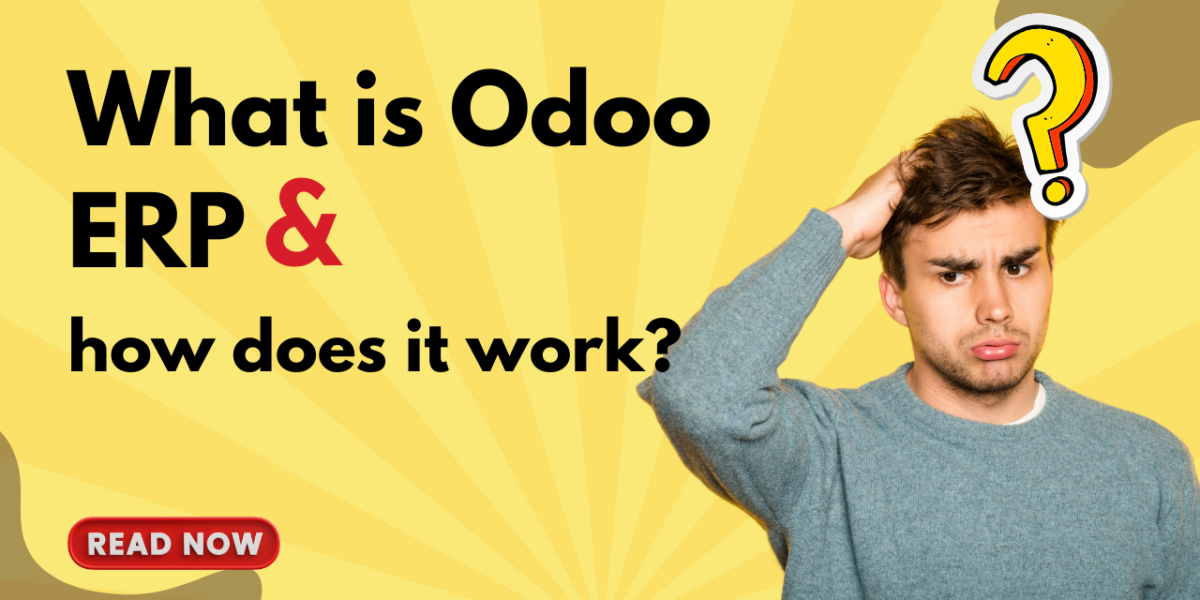Odoo vs HubSpot – Which One Should You Choose?
Choosing the right software for your business is a critical decision, especially when you’re looking at two industry giants like Odoo ERP and HubSpot CRM. Both are powerful tools that can significantly improve your business processes, but they serve different purposes and may be more suitable for specific business needs.
In this blog, we will break down the key differences between Odoo and HubSpot, compare their features, pricing, ease of use, and more, to help you decide which one is the best fit for your organization. Let’s dive into this comprehensive Odoo vs HubSpot comparison.
Introduction to Odoo and HubSpot

Before we get into the details of the comparison, let’s briefly introduce both platforms.
Odoo ERP
Odoo is a comprehensive Enterprise Resource Planning (ERP) software that provides businesses with a suite of applications for managing everything from accounting and human resources to sales, marketing, inventory, and more. It’s an open-source solution that is highly customizable and scalable, making it suitable for businesses of all sizes.
Odoo stands out for its all-in-one ERP functionality, which can be customized to fit the specific needs of your business. Whether you need a robust CRM system, HR management tools, or advanced accounting features, Odoo has you covered.
HubSpot CRM
On the other hand, HubSpot CRM is a cloud-based solution designed primarily for customer relationship management. HubSpot is focused on sales, marketing, and customer service, with a suite of tools designed to help businesses manage their interactions with customers and leads. It is one of the most popular CRM platforms globally, known for its user-friendly interface and ease of use.
HubSpot provides a free version of its CRM, which makes it highly attractive for startups and small businesses looking to improve their marketing and sales processes. HubSpot also offers paid versions with advanced features such as automation, reporting, and custom workflows.
Odoo vs HubSpot: The Key Differences

Now that we know what both platforms are, let’s dive into the specifics. Below, we’ll compare Odoo ERP and HubSpot CRM across several important factors:
1. Ease of Use
Odoo ERP
One of the key features of Odoo is its flexibility. Odoo can be customized to meet the specific needs of your business, whether you need a full ERP suite or just a few modules like Odoo CRM, Odoo HRMS, or Odoo Accounting. While it is an incredibly powerful platform, Odoo does require some technical expertise to fully implement and maintain.
For businesses with in-house IT teams, this may not be an issue, but for others, Odoo implementation can be a bit complex. It’s important to have Odoo consultants on board to ensure a smooth setup and customization process.
HubSpot CRM
HubSpot, on the other hand, is known for its ease of use. The platform is extremely user-friendly, even for businesses with no technical background. Its clean and simple interface makes it easy for your team to navigate and start using right away.
With HubSpot, there’s no complex setup process, and the CRM can be used immediately, even in its free version. However, for advanced features like automation, workflow management, and detailed reporting, you may need to upgrade to a paid version.
2. Features and Functionality
Odoo ERP
As a full-fledged ERP system, Odoo offers a wide range of features that cover virtually every business need:
- CRM: Manage customer relationships, track sales, and forecast future business.
- Sales: Create quotes, manage sales orders, and automate invoicing.
- Inventory: Streamline your warehouse management, including tracking stock levels, managing orders, and more.
- Accounting: Keep track of finances, generate invoices, manage payroll, and more.
- HRMS: Manage employee records, payroll, recruitment, and performance.
- Project Management: Plan, track, and collaborate on projects.
- Manufacturing: Manage production and operations with real-time data.
Odoo’s most significant advantage is its ability to serve as an all-in-one business management system. You can run everything from finance and HR to manufacturing and marketing within a single platform, making it perfect for large organizations or businesses looking to scale.
HubSpot CRM
HubSpot is more specialized in sales, marketing, and customer service:
- CRM: Track leads, manage contacts, and monitor the entire sales pipeline.
- Sales: Automate tasks, create deals, and track progress.
- Marketing: Create campaigns, automate email marketing, and manage social media.
- Customer Service: Manage customer feedback, create support tickets, and enhance customer satisfaction.
While HubSpot excels in customer relationship management and marketing automation, it lacks the deep operational and financial features that Odoo offers. If your business needs a complete solution across all departments, Odoo will be the better option. However, if your primary need is sales and marketing, HubSpot could be more than sufficient.
3. Pricing and Scalability
Odoo ERP
Odoo’s pricing model is highly flexible, based on the modules you choose and the number of users you need. The community version is free, but the enterprise version comes with a price tag. However, Odoo’s pay-per-app pricing means you only pay for the modules you use, which can be more cost-effective than all-in-one systems that charge for every feature.
For small businesses, Odoo offers affordable options that grow with your needs. As your business expands, Odoo’s scalability makes it easy to add more features, apps, and users without switching systems.
HubSpot CRM
HubSpot offers a free version of its CRM, which includes basic tools like contact management, email marketing, and lead tracking. As your business needs grow, you can upgrade to paid versions for additional features such as advanced reporting, workflow automation, and integrations with other tools.
While HubSpot’s free tools are a great way to get started, the cost can escalate as you add more users or need advanced features. For large businesses, HubSpot’s pricing can become quite expensive, especially compared to Odoo’s pay-per-app structure.
4. Integration Capabilities
Odoo ERP
One of the standout features of Odoo is its vast range of integrations. Since Odoo is an open-source solution, it supports a wide variety of third-party integrations. Whether you need to connect with other software for accounting, eCommerce, or marketing, Odoo can be integrated with numerous applications.
You can integrate Odoo with popular platforms like Shopify, Magento, Amazon, Google Analytics, and even custom solutions tailored to your business. This makes Odoo incredibly versatile and adaptable.
HubSpot CRM
HubSpot also offers integration with many third-party applications, including email providers, social media platforms, and marketing tools. It integrates easily with popular tools like Slack, Zapier, Google Workspace, and more.
However, HubSpot is not as customizable as Odoo in terms of integrations. If you need a more tailored solution, Odoo’s open-source nature makes it a better fit.
5. Support and Community
Odoo ERP
Odoo offers excellent customer support, especially for its Enterprise customers. For the Community version, you can rely on Odoo’s online community to find solutions to common issues. The Odoo community is quite active, with many developers and consultants contributing solutions to the platform.
If you’re new to Odoo, having a qualified Odoo consultant is a great idea to guide you through the implementation process.
HubSpot CRM
HubSpot is known for its excellent customer service, with a comprehensive knowledge base, live chat support, and a dedicated customer service team. HubSpot also offers a large community and a wide array of tutorials to help users get the most out of their platform.
For most users, HubSpot’s support system will be more than sufficient, especially if you are looking for a tool that’s easy to use.
Odoo vs HubSpot: Which One Should You Choose?

Both Odoo ERP and HubSpot CRM offer powerful solutions, but the choice ultimately depends on your business needs:
- If you’re looking for a full ERP solution that covers everything from accounting to HR to CRM, Odoo is the best choice. It is highly customizable and scalable for businesses of all sizes.
- If you’re focused primarily on sales, marketing, and customer service, and want a simple, easy-to-use system, HubSpot may be the right fit for you.
At Odiware, we specialize in Odoo implementation and consulting. We can help you understand which platform suits your business, and ensure seamless integration for optimized performance.

Ready to Make the Right Choice?
Contact Odiware today to get expert advice and implementation support for Odoo ERP or any other business software.
📧 Email: sales@odiware.com
📞 Call: +91 86608 65440
🌐 Website: www.odiware.com




